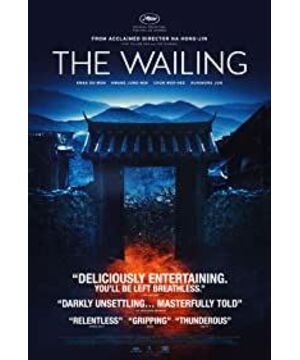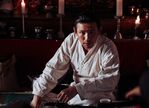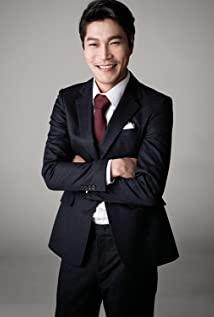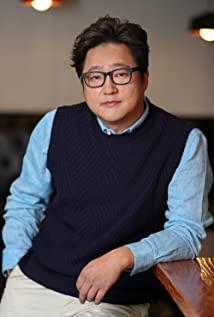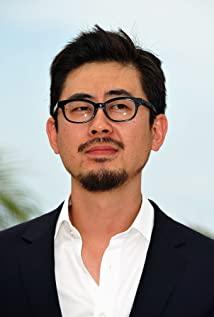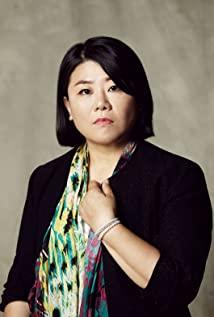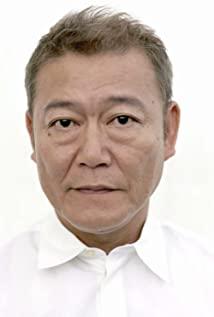Combining reality and fantasy, historical and social perspectives, he creates worlds reminiscent of the fusion of Faulkner and Márquez's work. ——The reason why Chinese writer Mo Yan won the Nobel Prize for Literature
one
Combining reality and fantasy, historical and social perspectives, he creates worlds reminiscent of the fusion of Faulkner and Márquez's work.
——The reason why Chinese writer Mo Yan won the Nobel Prize for Literature
Due to the appearance of murder, police and ghosts, South Korean director Luo Hongzhen's new work "The Cry" is naturally classified as a "suspense, detection or horror" film in terms of genre. After watching it, the audience discussed the most It is also "who is the real villain". And because the answer has never been found (unlike Feng Junhao's "Memories of Murder" which provides an unsolved ending, the murder in "The Cry" is unsolved), so some people are quite angry that the director used 2 It took half an hour to dig a hole, and in the end it was all the audience who wanted to know the truth. Of course, there are not a few people who support it. Some people compare it to Hitchcock's works, and some people think it is a great political fable. In fact, Luo Hongzhen has a strong personal style as a cutting-edge director who has risen in South Korea in recent years. He only released 3 works in 8 years, and the script of "The Cry" has been polished for almost two years and revised seven times. As a result of "two years of reading, seven additions and deletions", many clear-cut plots were deliberately hidden. Just as Cao Xueqin used "pseudo-language village dialects" to describe his personal experience, Luo Hongzhen also recounted what happened in his hometown. The murder case in Goseong-gun, Luonan Province, has been changed beyond recognition. In subsequent media interviews, he revealed two details that were deleted: one was the passport used by the elderly in Japan, which was later verified by police officer Zhong Jiu in the original script. , the above shows that this is an old passport used by Japan during the colonial period, which means that the old man is not a living person, but a "living ghost". Unfortunately, the fax fell silently to the ground and disappeared after being trampled on by everyone. This is undoubtedly an important explanation for the storyline, but in the end, this "easter egg" was not filmed. The passport representing the identity of the old man was only swept through the camera in the film, and viewers who were not familiar with the changes were of course ignorant. The second is the relationship between the Japanese old man and the Korean wizard Nikko. In the original script, the old man got into Nikko's car at the end of the story, clearly showing that the two were actually a group, but this clip was also deleted, and only Nikko was retained. When changing clothes, he revealed the same underwear as the Japanese old man - a traditional Japanese men's underwear called "裈".
Obviously, Luo Hongzhen doesn't want the movie to just show a series of murder cases and their detection process. All the killings and deaths in the film are just to carry the religion, culture, customs and history of Gucheng (in Dali, the whole of Korea). . This is a big ambition. Under this vision, Christian priests from the West, gods and demons from the East, as well as local shamans and folk ancestors and spirits all appear together to fight to the death in the Korean countryside in the 21st century, representing the legal system of the modern prosperous society Both (represented by the police) and science (represented by the doctors) are helpless in the face of unimaginable and bizarre deaths. Therefore, comparing "The Crying" with a Hitchcock-style suspense drama is undoubtedly going in the wrong direction. Gucheng is Luo Hongzhen's Macondo and Jefferson towns, fertile ground for magical realism. To paraphrase the reason why the Nobel Prize jury wrote to the Chinese writer Mo Yan: "Combining reality and fantasy, historical and social perspectives, the world he creates is reminiscent of the fusion of Faulkner and Marquez's works". This is undoubtedly the most appropriate and accurate interpretation of "The Cry".
two
Magical realism literature generally has the following characteristics: fantasyal elements (weird factors), real-world setting (the real world as the background), authorial reticence (the author does not make any explanation for the magical factors), plentitude (rich in details), hybridity (various realities) level of fusion), heightened awareness of mystery, political critique.
Gucheng is to Luo Hongzhen what Gaomi is to Mo Yan. It is a place where he grew up in his childhood. It is also beautiful and closed to tradition. It was also brutally bloodbathed during the Japanese invasion. The local people are simple and innocent on the one hand, and ignorant on the other hand. Even in the 21st century, where Americans and Britons are already discussing the impact of virtual social interaction on human relationships, people here still believe in asking a wizard to exorcise when they are sick. If you sort out the potential historical and cultural information in "Crying (Gucheng)" (these two words are written in the same way in Korean, in order to explain that the title of the film is "Crying", the Chinese characters of these two characters are specially noted on the poster), It can be roughly summed up as the following: The influence of Christianity. South Korea is currently the second largest missionary country in the world after the United States. Director Luo Hongzhen used to go to church with his grandmother when he was a child, and of course he became a Catholic. "The Crying" quotes the words from the "New Testament" at the beginning: "They were alarmed and afraid, thinking that what they saw was a soul. Jesus said, "Why are you troubled? Why do you have doubts in your hearts?" Believing what the disciples who were born again said, at the end of the film, the little Christian priest went to the cave to question the Japanese old man, which echoed this allusion. Shadows of Japanese colonialism. A mysterious foreign old man from Japan suddenly appeared in the Gucheng village far away from the city. As the first character to appear in the whole film, he was fishing leisurely when he appeared on the scene (fishing has the meaning of "fishing a bait", the wizard Nikko said that Zhong Jiu's daughter Xiaozhen was the fish he caught). The villagers believed that all the bad luck was brought about by him: some people saw him eating raw beasts with blood red eyes, some people said he was molesting a woman in the village, and the woman later went crazy, covered with acne, ran around naked, and finally set fire to bite people ( The so-called Chinese evil)... Obviously, the psychological shadow caused by the Japanese occupation cannot be dissipated even after 70 years. Murder, rape, and barbarism have become the collective memory of the entire village (including the country) for the Japanese.
ignorant people. Just as Ah Q suddenly takes pride in entering the city and mocks the country people, and suddenly despises the city people for calling the bench a bench, and frying fish with scallions instead of green onion leaves, "The Cry" is also full of Korean-style characters. Self-mockery. Villager Park Byung-jae witnessed the old Japanese eating raw meat, and was so frightened that he did not dare to eat meat again. The police asked him to lead the way to find evidence, but he was hit by a bolt from the blue halfway, and his wife believed that the reason why he survived was because he had eaten a lot of expensive game before, which had a life-saving effect. The policeman Zhong Jiu made a ruthless determination for his daughter to take the altar and a group of brothers up the mountain to "fight against the Japanese", but was disturbed by the zombies from the village who ran out halfway. All kinds of black humor, people can not help laughing. Reminiscent of Jiang Wen's "The Devil Has Come", the Chinese people in Laoshi Village, Hebei, both hated and feared the invaders, and wanted to resist and were extremely cowardly. It is not difficult to understand that the villagers of Gucheng are just their modern Korean version. The decline of native religions. As a primitive religion spread in Northeast Asia, shamanism is the most intact in today's South Korea, and it is also the first savior that villagers think of when they encounter trouble (the policeman Tongfu's way of warding off evil spirits in the film is to wear a cross, which shows that it is more and more different from modern society. Closer, the more westernized the means used). The shaman Sunlight played by Huang Zhengmin did not officially appear until 1 hour and 15 minutes. The two scenes of his "Jumping the Great God" in the film are astonishing passages, just like "Nanjing!" directed by Lu Chuan a few years ago. In "Nanjing", the soul-calling ceremony held by the Japanese army when they entered the city was a "magic stroke". No matter how advanced the technology is, the ancient sacrificial ceremonies still have a powerful spiritual shock, which is amplified by the audio-visual means of the film, so that people can see that the power of primitive ghosts and gods is still hidden in the blood of future generations. However, the powerful Nikko is greedy for money and charges 10 million won for a ritual. Second, he failed to truly protect the villagers (just like God couldn't save the police from Tongfu), and thirdly, he was very close to the old Japanese (ghost). It may be the same thing, that is, the exorcist and the demon have reached an agreement to make money together.
Ancestor worship and family beliefs. The beliefs of ancient human beings roughly include nature worship (believe in animism), theocracy (God, God, and Amaterasu are holy and great) and soul worship (sacrificing ancestors and praying for the blessing of the souls of ancestors). East Asian folks have always had the tradition of worshipping the gods and ancestors. Through genealogy, ancestral halls, and tablets, ancestors were able to accompany their younger generations and become another kind of protection force besides gods and Buddhas, or "family power". The nameless woman played by Qian Yuxi in the film can be regarded as a "representative of the ancestors". She always wears the clothes of the dead and speaks old-fashioned vocabulary (such as calling the old Japanese "Japanese pirates"), and the opening is "Grandma said. ”, and secretly protected the villagers in his own way.
three
Inserting magical and grotesque characters and plots, as well as various supernatural phenomena into narratives and descriptions that reflect reality, turns the real political society of Latin America into a modern mythology, with both uncanny fantasy and reality. The plots and scenes of ideology are indistinguishable from ghosts, and illusion and reality are mixed. —— "The 20th Century Foreign Literature: Chapter 5, Section 1", written by Wu Xiaodong
It is undoubtedly quite difficult to present a nation's style in film language, but many directors have made their own efforts, such as the former Soviet director Andrei Tarkovs who filmed "Andrei Lubrev" For example, the former Yugoslav director Emile Kusturica who filmed "Underground", and "The Cry" is Luo Hongzhen's analysis and interpretation of the Korean national psychology. The people of Gucheng in his shots are all weak and humble people, just like the people in Weizhuang described by Lu Xun, who are pitiful and ridiculous in the style of Ah Q. I do not know when or why, disaster (in the film, the invasion of foreign demons, which is a metaphor for the invasion of Japan) suddenly came to me. Democracy, legality, and medical science have never been the support of everyone, and even Christianity, which is about to become the state religion of South Korea, is unable to help (During the Japanese occupation, Christianity was severely suppressed in South Korea, and "foreign monks" obviously cannot solve the country's bullying. cruel reality), while local elites and religious forces colluded with the invaders to exploit the suffering and ignorance of the common people to make a fortune. This is the "magic reality" of the Korean countryside. In his Nobel Prize-winning speech "The Solitude of Latin America", the late Colombian great writer Maxis said, "In our vast country, men are full of fantasies, women are enough to go down in history, and their This extremely stubborn character is often confused with myths and legends." Yes, if you don't understand magical realism, you can't understand the world constructed by The Cry.
View more about The Wailing reviews


